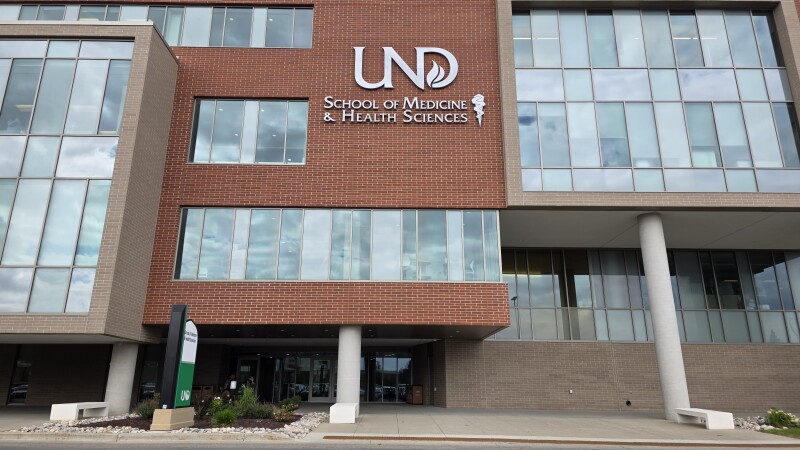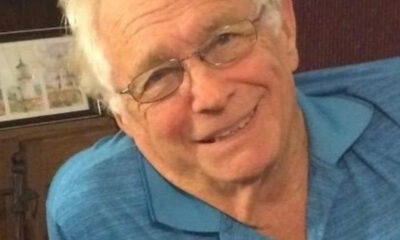World
University of North Dakota Secures Accreditation for PT Residency Program

The University of North Dakota (UND) has achieved a significant milestone by receiving accreditation for its Physical Therapy (PT) Faculty Residency Program. This accreditation marks the program as the fifth of its kind in the United States and the first in the Midwest. In a context where there is a nationwide shortage of qualified health care educators, this development offers a promising solution, according to a recent press release from the university.
Building Future Faculty
Gary Schindler, professor of physical therapy at the UND School of Medicine and Health Sciences, emphasized the program’s aim. “Our goal is to prepare the resident to be the best faculty member they can be for a physical therapy department anywhere,” he stated. Schindler believes that this initiative benefits not only UND but the broader physical therapy profession as well.
The residency program allows for one licensed physical therapist resident each year to serve as a temporary faculty member. During the two-year residency, residents gain essential experience in teaching, curriculum design, and engaging in scholarly projects. They will also complete graduate-level coursework through the College of Education and Human Development.
Upon completion of the program, residents will be awarded a College Teaching Certificate and will have the opportunity to pursue either an Ed.D. (Doctor of Education) or Ph.D. (Doctor of Philosophy). Additionally, they will participate in the Alice T. Clark mentoring program and a Faculty Development Workshop offered through the American Physical Therapy Association.
Tackling Faculty Shortages
As the demand for physical therapy educators rises, the shortage of qualified personnel is becoming increasingly apparent. According to Cindy Flom-Meland, chair of the Department of Physical Therapy, the retirement of existing faculty has exacerbated the situation. “What’s happening around the country is that people are retiring, resulting in faculty shortages,” Flom-Meland explained. She views the residency program as a vital pathway to develop additional faculty for UND and other Doctor of Physical Therapy programs nationwide.
The need for faculty with advanced degrees is critical. Many health professions, including physical therapy, require a clinical doctorate to practice. In the case of physical therapists, the required degree is the Doctor of Physical Therapy, a program that UND provides. Accrediting bodies insist that educational programs maintain a sufficient number of research-oriented faculty members with Ph.D. degrees in the classroom.
Dave Relling, senior associate dean for health sciences at UND, highlighted the challenge of finding Ph.D.-trained physical therapists. “Unfortunately, there aren’t a lot of Ph.D.-trained physical therapists,” Relling noted. This shortage often means that health science training programs must cultivate their own faculty internally. He illustrated this point by explaining that if a department is unable to hire a full-time faculty member due to a lack of a doctoral degree, a residency program can help bridge that gap.
“This helps build the next generation of physical therapy educators at a time when they’re needed most,” Relling added, praising Schindler’s collaborative approach in developing the program. He noted that Schindler actively sought input from faculty across various departments, providing residents with a comprehensive understanding of what it means to be an academic.
Other institutions with accredited PT Faculty Residency programs include Duke University in North Carolina, Nova Southeastern University in Florida, Rocky Mountain University of Health Professions in Utah, and the University of Colorado Anschutz Medical Campus.
This accreditation not only positions UND at the forefront of addressing educational gaps in physical therapy but also plays a crucial role in enhancing the quality of health care education across the United States.
-

 Science4 weeks ago
Science4 weeks agoALMA Discovers Companion Orbiting Giant Red Star π 1 Gruis
-

 Politics2 months ago
Politics2 months agoSEVENTEEN’s Mingyu Faces Backlash Over Alcohol Incident at Concert
-

 Top Stories2 months ago
Top Stories2 months agoNew ‘Star Trek: Voyager’ Game Demo Released, Players Test Limits
-

 World2 months ago
World2 months agoGlobal Air Forces Ranked by Annual Defense Budgets in 2025
-

 World2 months ago
World2 months agoElectrification Challenges Demand Advanced Multiphysics Modeling
-

 World2 months ago
World2 months agoMass Production of F-35 Fighter Jet Drives Down Costs
-

 Business2 months ago
Business2 months agoGold Investment Surge: Top Mutual Funds and ETF Alternatives
-

 Science2 months ago
Science2 months agoTime Crystals Revolutionize Quantum Computing Potential
-

 Top Stories2 months ago
Top Stories2 months agoDirecTV to Launch AI-Driven Ads with User Likenesses in 2026
-

 Entertainment2 months ago
Entertainment2 months agoFreeport Art Gallery Transforms Waste into Creative Masterpieces
-

 Science2 months ago
Science2 months agoRemembering David E. Brest: A Life Dedicated to Nature and Family
-

 Business2 months ago
Business2 months agoUS Government Denies Coal Lease Bid, Impacting Industry Revival Efforts









